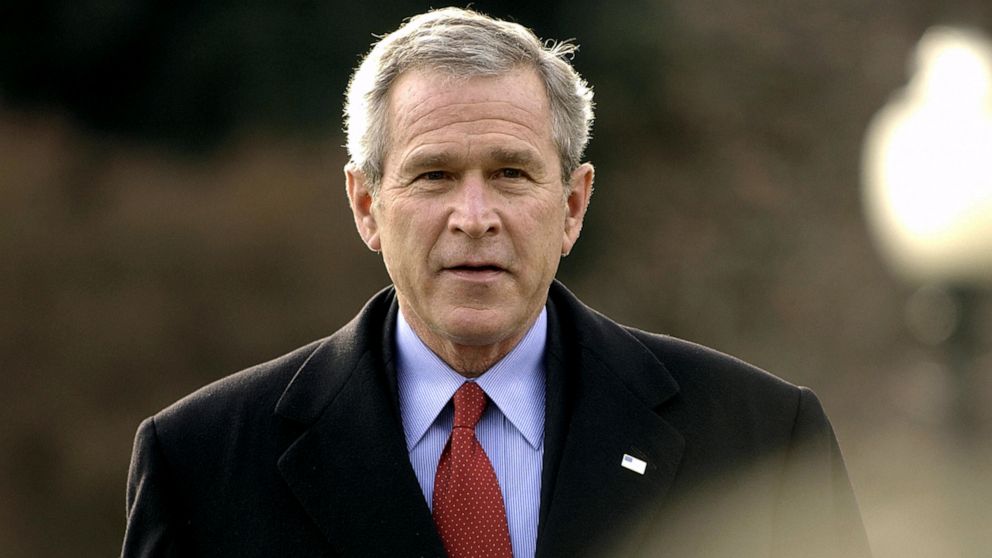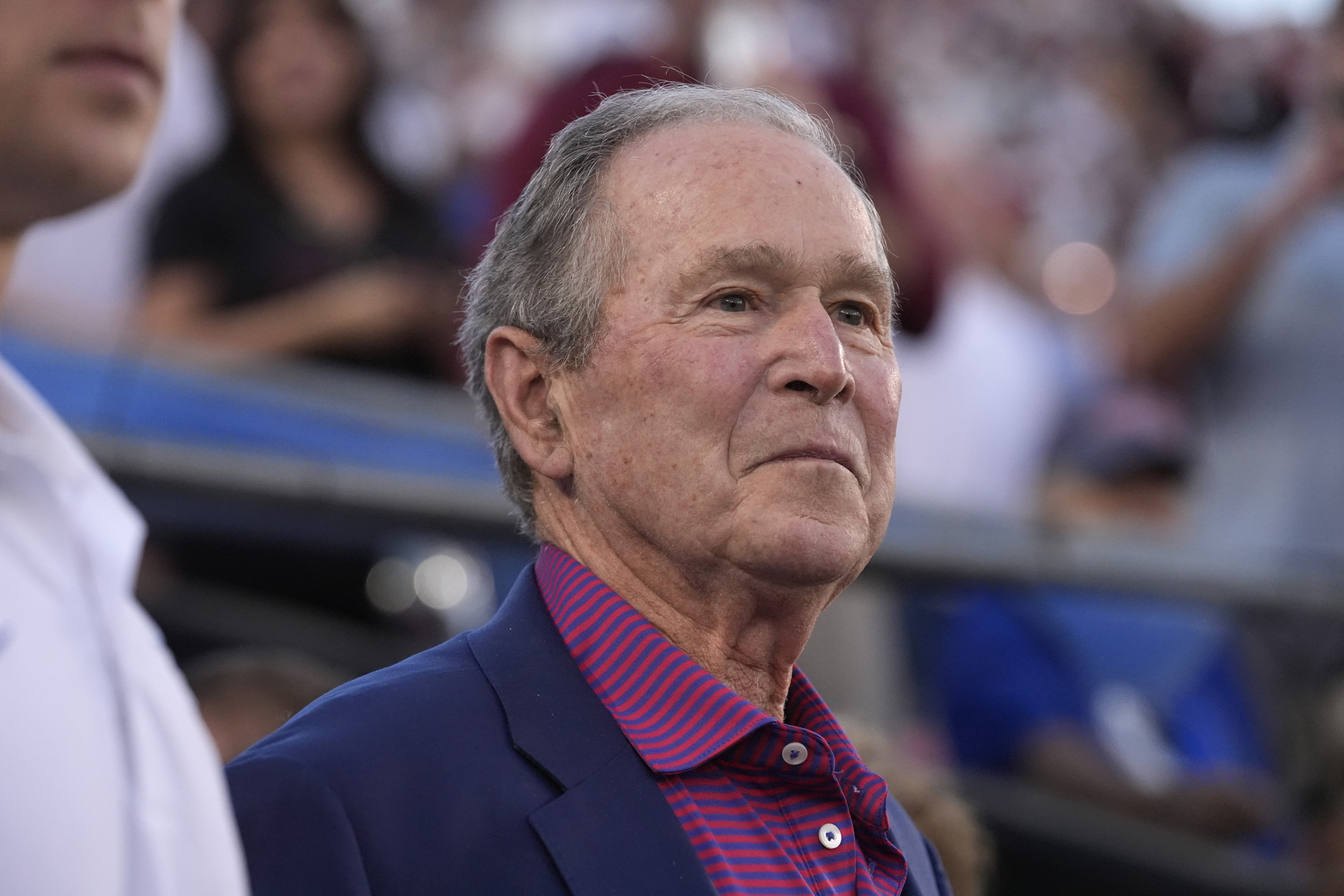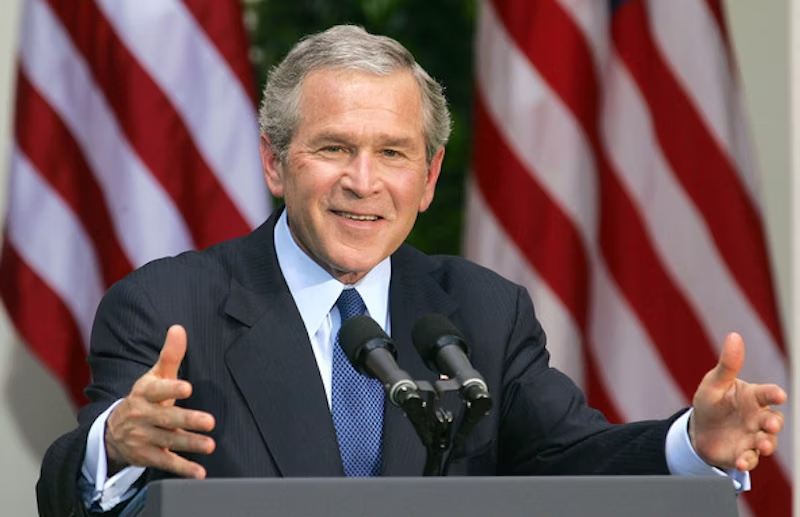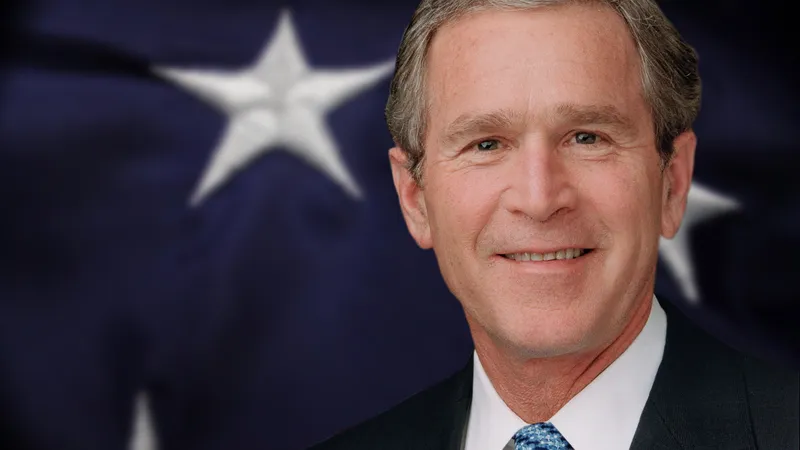George W. Bush, the 43rd President of the United States, has an estimated net worth of $50 million. Born on July 6, 1946, in Connecticut, he grew up in a politically influential family, with his father, George H.W. Bush, having served as the 41st president of the United States. His grandfather, Prescott Bush, was a Senator from Connecticut, cementing the family’s political legacy.
Family and Childhood
Bush was raised alongside four siblings, with one tragically passing away from leukemia at just three years old. He attended prep schools and later went to a boarding school in Massachusetts. Though his academic performance was average, Bush became the head cheerleader at both his boarding school and later at Yale University. At Yale, he joined the Skull and Bones Society, further establishing his connection to powerful circles. Despite his unremarkable academic performance, he went on to study history at Yale.

Education and Early Career
After completing his undergraduate degree, Bush applied to the University of Texas Law School but was rejected. He then enrolled in Harvard Business School and earned an MBA, making him the first U.S. president to hold this degree. Upon graduating, he turned his attention to the business world, where he began to make a name for himself in the oil industry.
Military Service
Before attending Harvard, George W. Bush served in the Texas Air National Guard during the Vietnam War era. Although he did not see active combat, Bush logged flight hours and participated in drills. He was later honorably discharged after missing several required physical exams and failing to attend some scheduled drills.
Oil Industry and Business Ventures
In 1977, Bush established Arbusto Energy, which later became Bush Exploration. He invested heavily in the oil industry, guiding the market’s fluctuations while also facing allegations of insider trading. His involvement in oil companies like Spectrum 7 and HKN, Inc. further bolstered his business career. His time in the oil business was marked by both challenges and growth, as he sought to navigate the volatile oil market.
Texas Rangers Investment
One of Bush’s most lucrative business ventures came in 1989 when he led a group of investors to purchase the Texas Rangers MLB franchise. The group paid $86 million for the team, with Bush contributing $500,000, although much of this amount was borrowed. His stake in the team initially amounted to 1.8%, but an additional 10% was gifted to him as part of the agreement. This proved to be a smart investment, as the team’s value grew significantly.
Under Bush’s leadership, the Rangers’ stadium was upgraded, thanks to a $135 million taxpayer-funded project. This investment played a significant role in the team’s financial success. Bush remained the managing partner until 1994 when he stepped down to focus on his political career. When the team was sold in 1998 for $250 million, Bush’s 12% stake netted him a $15 million profit after taxes.

Political Career
George W. Bush first became involved in politics in 1978, running for the U.S. House of Representatives. Though he lost, his political ambitions didn’t end there. He played a crucial role in his father’s campaigns, helping with political strategies and rallying support across the country. In 1994, Bush ran for governor of Texas and won with 53% of the vote. As governor, he implemented tax cuts and supported the expansion of wind energy in Texas.
By 2000, Bush had become a serious contender for the presidency. He won the Republican nomination and chose Dick Cheney as his running mate. After a contentious election against Al Gore, which included a disputed vote count in Florida, Bush became the 43rd president of the United States.
Presidency and Major Events
Bush’s presidency was defined by major events, most notably the September 11, 2001, terrorist attacks. These events significantly altered U.S. foreign policy and led to the launch of the War on Terror. In response, Bush led the U.S. into the wars in Afghanistan and Iraq, both of which were focal points of his presidency. His approval ratings initially soared in the wake of these events but declined dramatically during the 2008 financial crisis and recession.
In 1977, George W. Bush met Laura Welch at a barbecue, and the two married later that year. They had twin daughters in 1982. After leaving the White House, Bush pursued painting, a passion that became a notable hobby in his post-presidential life. His interests also extend to golf and baseball, and he enjoys spending time with his family.
Real Estate and Lifestyle
George W. Bush resides in an 8,500-square-foot home in the Preston Hollow neighborhood of Dallas, Texas. The home is located on a quiet cul-de-sac, providing security and privacy for the former president. Bush and his wife, Laura, also spend time at their 1,500-acre ranch near Crawford, Texas. The property is used for both personal and public purposes, providing a secluded space for the family.
Bush’s Dallas home is close to the site of his Presidential Library, ensuring that both his private and professional life remain intertwined in the city. Additionally, there have been rumors of the Bush family purchasing neighboring homes to further secure their location.

Controversies and Criticisms
Throughout his political career, George W. Bush faced criticism and controversy. His military service, for example, was scrutinized, especially regarding his attendance records in the Texas Air National Guard. Many speculated that his father’s influence played a role in ensuring his service was free from active combat. Additionally, Bush was arrested for driving under the influence in 1976, which sparked further public debates about his past.
The legitimacy of his presidency has also been questioned, particularly due to the 2000 election’s disputed vote recount in Florida. Despite these controversies, Bush remained a popular figure in American politics, particularly during and after the September 11th attacks.
Legacy and Wealth
Today, George W. Bush’s wealth is largely derived from his successful investments in both the oil industry and his stake in the Texas Rangers. While his presidency was marked by significant challenges, it also helped shape his financial and political legacy. Bush’s wealth, now estimated at $50 million, comes from his years of business experience, political endeavors, and investments.
His post-presidential life has seen him focus on various interests, including art and public speaking while remaining a significant figure in American politics. Despite the controversies surrounding his career, George W. Bush’s influence, both politically and financially, has left an indelible mark on the country. His wealth, primarily amassed through smart business ventures, continues to reflect his diverse career and legacy.




